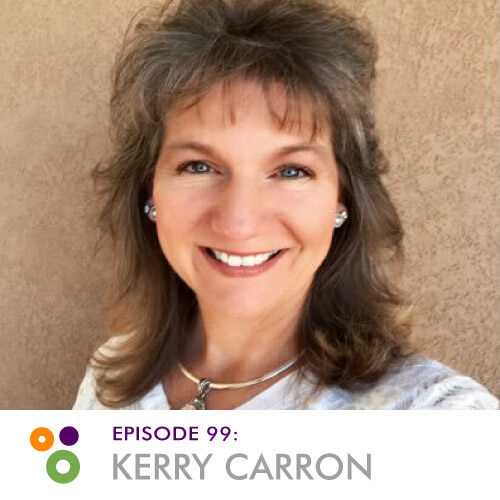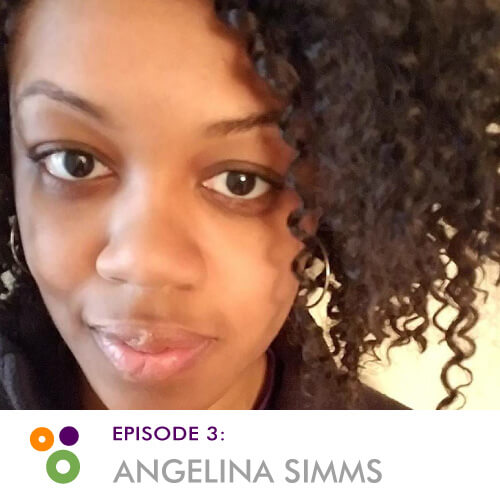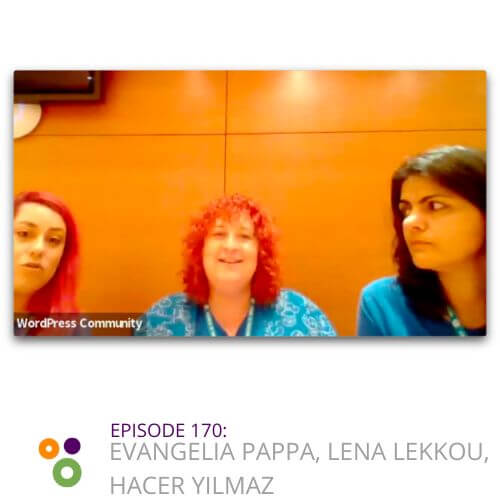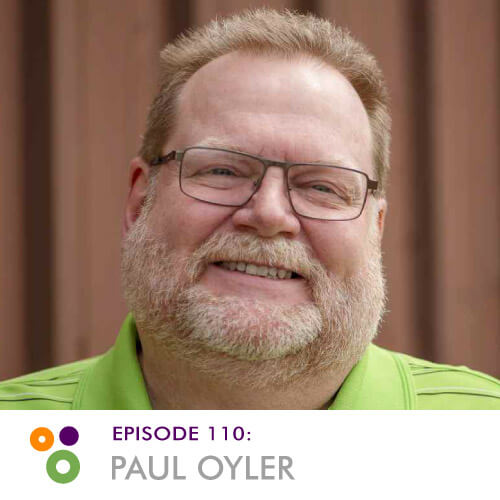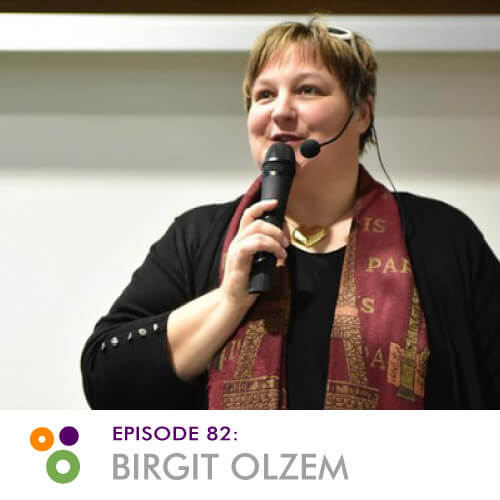Episode 128 – Nigel Rodgers

Podcast: Play in new window | Download
Subscribe: RSS
Introducing Nigel Rodgers
Nigel likes helping people with WordPress, whether it’s building new websites, fixing websites, organizing meetups and events, and connecting people.
Show Notes
Website | DiviMade.com
Twitter| @nigelmrodgers
Preferred Pronouns | He/Him
Episode Transcript
Tara: This is Hallway Chats where we meet people who use WordPress.
Liam: We ask questions, and our guests share their stories, ideas, and perspectives.
Tara: And now the conversation begins. This is Episode 128.
Liam: Welcome to Hallway Chats. I’m Liam Dempsey.
Tara: And I’m Tara Claeys. Today we’re joined by Nigel Rodgers. He likes helping people with WordPress, whether it’s building new websites, fixing websites, organizing meetups and events, and connecting people. Nigel says he’s an introvert and that WordPress world is one of the few things that he’s managed to stick with for a long time. Hi, Nigel, we’re so glad you’re here. Thanks for joining us.
Nigel: Hi, guys. Thanks for having me.
Liam: You’re very welcome. Thanks for joining us. Tell us a little bit more about yourself more than what Tara shared.
Nigel: My name is Nigel and I live in Harare. That’s in Zimbabwe. I’ve been here pretty much my whole life. I started using WordPress in 2016. I think it was sometime in the middle of 2016. Around August, I think I found out that there was a new WordPress meetup and also that we were having our first WordCamp at November. As soon as I found out about the WordCamp, I signed up to be a speaker and joined the meetup also. I have been pretty much doing WordPress since, as a web developer.
Liam: Well, it’s impressive that your first time you signed up to speak. Do you remember what you spoke about?
Tara: Yeah. My talk was on using WordPress with Git. Since then I’ve rolled back a bit on the more developers side of things, and I’ve just mainly built websites now. Like, less technical stuff. So using page builders and a bit of code here and there, but not that much anymore.
Liam: Do you prefer that or do you miss the code?
Nigel: I kind of miss the code. I prefer to get back into code but at the same time life catches up and you have to keep earning the money and doing other things.
Tara: Nigel, what time is it where you are?
Nigel: It’s really late. It’s about 12 am here. That’s actually an interesting story. So most days, especially the beginners and those who can’t afford backup power, this is like our 8 a.m. because normally when it isn’t locked down and the factories and industries aren’t closed – so now factories and industries are closed, so it’s a bit okay – but when factories and industries are all running and all, we get power for about eight hours a day between 10 p.m. and 5 a.m. So that’s actually seven hours. That’s where we get power at our homes because we are on an economic depression and the electricity isn’t enough for the whole country.
Tara: Wow. Wow.
Nigel: So normally this is when I’d be just have woken up, two hours ago.
Tara: That’s a challenge. Wow. So you sleep during the day when there’s no electricity?
Nigel: When there’s no electricity. Either way, I do sleep during the day because then we also go to co-working spaces during the day. So that’s kind of okay when we can go to the co-working space. But if I can’t go there, then I have to work from home. And the only time I can work from home if I can’t afford a solar backup or a generator is from 10 p.m. to 5 a.m.
Tara: Wow. Thanks for sharing that. I did not know that.
Nigel: One thing I wanted to say about that, if it came up was, it’s tough, but it’s okay for us. So you don’t have to worry too much about us.
Tara: Thank you.
Liam: No, I don’t think it’s that we would be worried like that. But especially in a COVID-19 where we’re, not in a bad way, but everybody’s a little woe is me, and I don’t mean that in a flippant way, but there’s always somebody who’s got another challenge that we don’t have. And even if we’re really suffering or struggling, there’s always somebody who’s got another challenge. Thank you for sharing that. That was really, really, really valuable to hear.
Nigel: We’ve had pretty much 24 hours a day of electricity since the first day of our lockdown. And we hadn’t had that since August last year, I think, which is pretty nice.
Liam: Wow. So I have a couple of questions for you. One is, talk to me about your preferred page builder of choice. I’ll start with that one and let you answer that.
Nigel: That’s a controversial question sometimes. It’s one of those like pizza, pineapple or what’s your text editor of choice question. But I’ll just go ahead and say it’s Divi. One of the main reasons I think it was because of the lifetime MySQL license and also it’s pretty good. So that’s what I chose and I stuck with it.
Liam: And how long have you been using that for? You said you started in code in 2016. It’s now 2020. When did you transition to Divi?
Nigel: Sometime in 2018. Yeah, the beginning of 2018.
Tara: I know Divi has a really, really active community. Are you involved in that community in Facebook groups or other communities of Divi?
Nigel: I’m on the Facebook groups. I’ve forgotten what they call it. There’s a few groups. I think I’m in two or three of them. Maybe four. But yeah, just in the Facebook groups. Sometimes I help, sometimes I don’t. But I’m not on Facebook a lot anymore these days.
Tara: Yeah, I hear you. I think we’re representing all the page builders here today, if you’re Divi.
Liam: Tara is a Beaver Builder and I’m an Elementor. So there you have it. And we’re having a lovely conversation and we’re not throwing shade on each other at all.
Tara: I think if I could use them all, I would. But you have to kind of pick a path and stick to it or else you’re going to drive yourself crazy.
Nigel: Because when you read the blogs and all, it seems to me as if there is a kind of a hierarchy from all the reviews I see. From my observation of reviews, it always seems to be Beaver Builder, then Elementor, then Divi sometimes or sometimes something else. And maybe some way after those two.
Tara: Well, Divi has been around longer, I think. Just that it has the short code thing going for it or against it, I guess.
Liam: We’re going to move on. Tara is starting to throw more barbs. Nigel, I do want to ask you about your first WordCamp experience, because that’s often a pivotal entryway for a lot of the folks that we get to chat with here on the show. So tell us about that. You first saw the notice of the WordCamp probably in the dashboard, right, of a WordPress site you were working on. Walk us through the process where you said, “One, I want to go, and two, I want to speak.” Again, you’ve shared that you’re an introvert, and volunteering to speak at new WordCamps is not something many, many introverts do or at least they don’t do willingly, or without some trepidation. Can you talk to us about that, please?
Nigel: Yeah. It’s been a while since the first WordCamp so I can’t really remember exactly what was going through my head. But it was about setting a goal that would help me grow my skills in WordPress sense. I didn’t really know what the community was about at the time. For me, it was growing through sharing my knowledge at the meetups and through learning from others at the meetup. But then through going to the meetup, that’s when I learned about the community and also at WordCamp. And then learning about the other WordCamps and then seeing online what other people are doing and connecting with the larger international community. So it grew on me slowly. That was how WordCamp and meetups affected me.
Liam: How many meetups did you attend before your first WordCamp?
Nigel: It was about three or four because we had…
Liam: So you were still pretty new to it all?
Nigel: Mm hmm.
Liam: Have you been to WordCamps since? Oh, I’m sorry. I cut you off. Go ahead.
Nigel: Yeah. We had monthly meetups. So that was around four months before the first WordCamp. And yeah, I’ve attended all of the local WordCamps since. So that should be about four WordCamps. But there are other WordCamps.
Liam: Okay. And by local, they’re all the WordCamp Harare? So there have been four of them there now?
Nigel: Yeah.
Liam: That’s fantastic. It’s on my list of places of WordCamps to hit. I’d love to go. I’d love to go.
Nigel: Actually, I was the organizer for last year’s.
Tara: Wow. You’ve really taken WordPress into your heart, it sounds like right from the get-go. I’d like to ask you because when we introduced you, you told us that you are an introvert. I know WordCamps and WordPress community is very welcoming, and we meet a lot of people who are introverts and who feel comfortable in the WordPress space. So how does that work for you? Do you feel comfortable? Is it something that you had to get used to? Talk a little bit about being an introvert in the WordPress community?
Nigel: I am an introvert but at the same time, I’m not shy. But the nice thing about WordCamps or the WordPress community is for me, it kind of gives a space where you can talk about things that you’re interested in with people and have conversations that I wouldn’t necessarily have with my family or normal friends and grow interest. The other thing about me is I get distracted easily. So, in WordPress, it’s easy to…how can I say? I’m trying to think of a way to express it. Like I’m a nerd. It’s hard to decide on a career for someone who’s curious about everything. But with WordPress, the nice thing is a very curious person can go into WordPress. And it’s so deep and wide, that your curiosity is never really fulfilled, but at the same time, everything you’re doing is so relevant to the job you’re doing. So you might go a bit further and wider than you need, but still it’s not a really big deal than say if you’re doing something else. That’s always trying new experience.
Liam: That’s a really beautiful thought, and it’s a perspective that I don’t think I’ve ever really appreciated before enough. It makes perfect sense once you said that. And it’s so true. And as you were talking, I was thinking about just the way that I’ve kind of jumped around in where I’m focusing in this WordPress technology or that design side of things, or exploring plugins, or themes, or code and core and all the different ways that we can explore just the software, not even starting to get into community sides of things. That’s a brilliant observation.
Nigel: Community side, then going to blogging and writing, and SEO, they’re all totally different things, but they’re all relevant when you learn them. And you can all use them in your work. That’s one of the nice things about WordPress.
Tara: Yeah, I totally agree. I haven’t thought about that way for a long time. I think that’s crossed my mind before but similarly, it’s really nice that you can spend your day doing a few different things or your week doing a few different things and you don’t really get bored because there are so many different things to learn and do and touch upon when you’re building websites. That’s very true. It’s great for you to make the connection between that and your personality. I love that.
Liam: Nigel, you’ve mentioned that you are using Divi to make WordPress websites. Tell us a little bit about what you’re doing professionally with WordPress workwise. What does that look like for you?
Nigel: Basically, I make websites for clients. Once in a while, if there’s a big project that I’m interested in, it goes a bit bigger, maybe a platform kind of website like, say, a new site or something that’s connected with API’s and stuff like that. If it’s interesting and, well, pays a lot, of course, but yeah, basically just brochure websites mostly and support. So maintenance and support, so fixing SSR issues or white screens or stuff like that or my site’s being hacked or something like that.
Liam: And how are you finding clients? How do you meet new ones and bring folks on board?
Nigel: That is a struggle for me.
Liam: It’s a struggle for a lot of us.
Nigel: From referrals mostly. This year I’ve ended up with a bunch of guys. There’s a marketer, a developer, blogger, and some…there’s about five of us. We all have different skills but we work together as a company.
Liam: Oh, that’s excellent. Sorry, Tara.
Nigel: We’re all freelancers but we work…
Liam: And are you all local to each other?
Nigel: Yeah, we’re all local.
Liam: And are you all maybe even go to the meetup together?
Nigel: Yeah, I think all of us have been. Yeah, we are all members of the meetup, and most of us have attended WordCamps, I think.
Liam: That’s really cool. That’s really cool. Nigel, I want to ask you one of our signature questions, and it’s about success. We’ve talked about business, we’ve talked about getting into the WordPress community, we’ve talked about writing code and using a page builder and alike. But I want to ask you about your own definition of success. And it might be a personal definition, it might be a professional definition. How do you define success?
Nigel: I’ve been listening to the podcast for years and I still don’t know how to define success.
Liam: Well, I love your candor. I love your candor.
Nigel: But I think I’d say the ability to dream I think is one of the main paths of success. So kind of having something that you can look forward to that you didn’t have to look forward to before the point you’ve reached now.
Tara: Yeah, having something to look forward to. Can you give an example of a time when you felt that?
Nigel: Let me think.
Tara: We should say that we’re recording this in a time when the world is in a bit of a…it’s a challenge to look forward to things and plan ahead, right? So I’m not sure if that is harder to answer right now, but maybe you can think of something now or something that you’ve had in the past that you look forward to.
Nigel: Last year, planning the WordCamp was kind of kind of a turning point for me because it’s a challenge that I wouldn’t have normally taken. I think that was one on time that I really kind of had something to look forward to in the past. Right now, I’m not really sure because life’s changing. I’m not really sure what tomorrow is, but yeah.
Liam: That’s definitely something to look forward to. I wonder if volunteering to be the lead organizer for the WordCamp was you thinking, “Here’s a way for me to grow my skills, to stretch myself to step out of my comfort zone,” or when they asked for volunteers, were you just the last one to step back and leave somebody else standing in the front row?
Nigel: It was kind of the second one. Since I was on the main organizer of the meetup and at the time, there weren’t any other main meetup organizers and nobody had stepped forward to organize the WordCamp, I thought if no one steps forward, then we might not have a WordCamp. So I delayed until the very last moment to apply to organize. That’s how it happened. But nice thing is through organizing last year’s WordCamp, a few of the team members and meetup members have now stepped up into more permanent meetup organizing roles. So at least I don’t have to worry too much about being put on the spot about organizing a WordCamp anymore.
Tara: Yeah, you have a team and a community now. And now you’ve got one under your belt so that make it easier next time, right?
Nigel: Yeah, definitely.
Tara: I’m sure the first year is always harder. Were you happy with how it went?
Nigel: Oh, yeah, there were some successes and some not so much successes. But it was an okay WordCamp.
Tara: How many people attended?
Nigel: Just about 50. It was less than the previous one. But also, last year or since around the end of 2018, we’ve been on an economic depression. So things have been really tough locally. So the turnout was was definitely going to be lower than we expected. Even though the tickets were way cheaper than the previous year though.
Tara: Well, 50 people’s a great turnout then.
Nigel: Yeah. 2018 was about 100 people I think.
Liam: I went to a WordCamp last year that had about 50 people. And I went pretty far to get there. And it was probably one of my most favorite WordCamp experiences because Tara and I have been to WordCamps with 100 people, 200 people, but we’ve also been to WordCamps with 500, 800, 2000 people. And going to WordCamp with 50, I didn’t feel like I knew everybody at the end of the day, but I felt like I knew a lot of people and folks I had connected with. It was a deeper connection than a bigger one. So those smaller numbers, you know, we don’t have that big WordCamp – and I know that’s not your attitude. I’m not suggesting it – but they can be a lot more valuable in a lot of ways, can’t they?
Nigel: Yeah, definitely. Because most of the 50 people were people we’ve met from the first WordCamp, and the people who you see once a year, but who you kind of like we’re close friends at the same time because we’re interacting online the whole year, and then WordCamp is where you all come together and see each other in person for the first time or the only time in the year. And it’s kind of like you really know each other over the years. And even if they are new people, we instantly connect and we start interacting there and then. It’s kind of more intimate when there’s lower numbers.
Tara: Yeah, I can see that for sure. Nigel, what do you do for fun when you’re not going to WordCamps and meetups and building websites?
Nigel: For fun, I’m mostly on my computer so I’m going to be on my phone, so games and stuff like YouTube. These days I’m staying off Twitter and Facebook.
Liam: Not a terrible idea.
Tara: No. It can definitely be a time suck and also it can be emotionally draining too. So I can vouch for taking those things off your phone. We like to ask our guests another question, which is about advice. And so I’m going to ask you that question which is, have you received any advice that you can remember that meant a lot to you and that you’ve implemented in your life that you can share with us?
Nigel: I also wasn’t ready for this question. But I think the best advice is not to be too hard on yourself when you don’t achieve the things you want to achieve or reach the goals you want to reach. I think that’s one of the biggest pieces of advice that I’ve heard.
Liam: I think that’s a particularly valuable piece of advice in this current climate as we’re facing with not just the challenges of social isolation and physical distancing, social distancing, but inevitably the economic hardship that’s causing lots and lots of folks and will continue to cause lots and lots of folks all over the world for many months to come. So yeah, not beating yourself up is a very good piece of advice. Thank you for sharing that.
I have a question for you about learning something on your own. You talked about one of the things that you like so much about WordPress is that you can take it in a lot of different directions. You can explore a lot of different aspects with it. What has been one of the most challenging things that you’ve learned about WordPress or something WordPress-related and how did you go about learning it or getting your head around it especially since it was so challenging?
Nigel: It’s definitely coding. But I think understanding WordPress, the software, and how the community is related to it. Well, I haven’t experienced other software communities firsthand, but observing them it’s kind of you can tell there’s a difference between how other software communities work than how the WordPress community works. And I think you can even see it in the software end. I guess it’s also because of the fact that it’s a content management system, so it’s going to be very people-oriented. So, understanding the “people-orientedness” of it in quotation marks, it was kind of coming to the realization of…Like, say, if you’re someone who does Python or who does something else, they usually don’t think a lot. Like they have their feasibility study or whatever and they do their projects, but they don’t think too much about the people who the software is going to make…I don’t know how to explain it. But yeah, WordPress is like the people whose the software is being made for are more involved in it.
Tara: For sure. WordPress is about community and democracy and all of those things. But it’s something that we really value about using WordPress. And that’s one of the reasons why we do this podcast is because the WordPress community is so strong. And you’re right, it’s related to how WordPress works. It’s a good connection that you’re making there between the Software and the community and the people that use it. So I appreciate your sharing that. Thank you.
Liam: Nigel, as we wrap up here and we come to the end of our time together, before we say thank you and goodbye, can you share where people can find you online?
Nigel: You can find me on Twitter, that’s @Nigelmrogers or on my website, that’s divimade.com.
Liam: Divi Made?
Nigel: Yeah.
Liam: That’s a fantastic URL. Well done to you. Well done.
Tara: Awesome. Good job. Nigel, it’s been great meeting you. Thank you so much for joining us on Hallway Chats. Best wishes to you.
Nigel: Thanks for having me, and all the best to you guys too.
Tara: If you like what we’re doing here – meeting new people in our WordPress community – we invite you to tell others about it. We’re on iTunes and at hallwaychats-staging.ulpgsyz6-liquidwebsites.com.
Liam: Better yet, ask your WordPress friends and colleagues to join us on the show. Encourage them to complete the “Be on the show” form on our site, to tell us about themselves.
